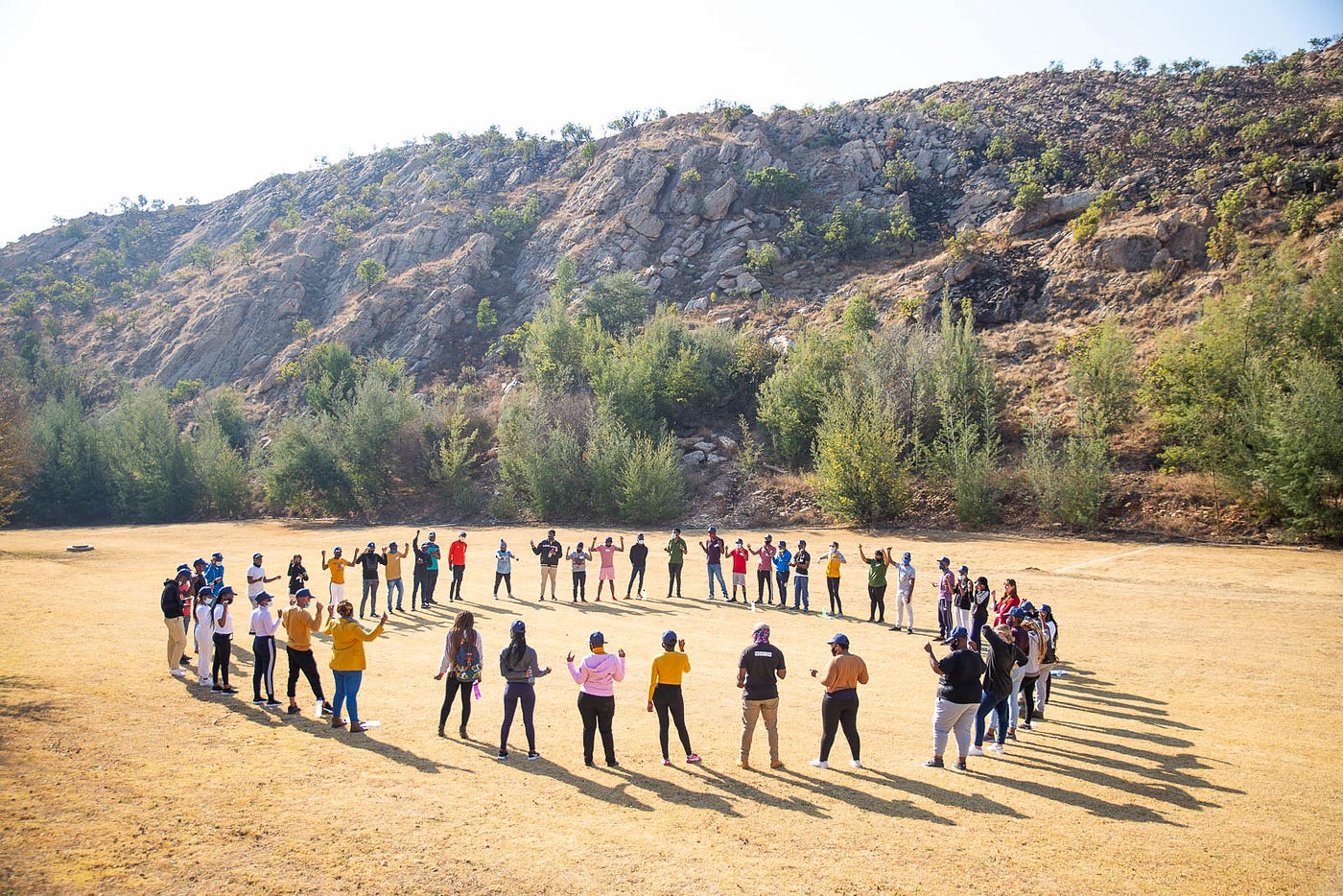

SA Youth connects young people to work and employers to a pool of entry level talent.
Are you a work-seeker?
The first cohort of the Skills for Prosperity plumbing apprentices are halfway through their intensive three-year programme to become qualified Red Seal plumbers in South Africa. In changing the lives of these apprentices, the programme, funded by the British government, has also changed the country’s plumbing industry, sometimes in unexpected ways.
Women currently make up only 3% of the South African plumbing sector. However, this is changing substantially thanks to the policy of actively recruiting 50% women into the programme, run in partnership with Harambee Youth Employment Accelerator and implementation partners, the Institute of Plumbing of South Africa (IOPSA) and BluLever Education. And the women themselves are leading the change.
Changing perceptions
When apprentice Nosphephelo Mbuyeleni (28) joined the company where she would be doing her employer-based learning, she sensed the team was sceptical of a woman’s ability to do the job. She resolved to do everything that was asked of her, especially the jobs they thought she could not do. “Having been through the BluLever Leadership Base Camp, I knew that women could do anything, and this helped me turn my colleagues’ doubts to admiration.” Her drive and work ethic led to her employer planning to ensure that, going forward, 50% of its employees would be women, including creating a women-only team.
Changing policies
Another meaningful change occurred when apprentice Lulama Ntsinde (30) discovered she was pregnant just six months into the programme. This was a first for the industry, and she was understandably afraid she would lose her place on the programme. But the opposite happened. Stakeholders, led by IOPSA and BluLever, worked together to create parental leave policies for the industry. Lulama missed none of her training because she gave birth and took parental leave in the break between the first and second years of the programme. “I never set out to change the industry, but I am proud of what I am doing and passionate about plumbing!”
She admits that sometimes it is overwhelming juggling family life — which includes a supportive husband, an infant and two older children — with a job that requires continued learning through daily assignments. “I did not think I could do it,” she admits, “but I decided to challenge myself because even at this early stage, my career is fulfilling and worthwhile.” She credits the BluLever Leadership Base Camp at the start of the programme for bringing out her ability to envision herself at the end of her apprenticeship. “I set small goals towards that big goal. Every time I achieve a goal, I set another one. There is no question of giving up because I am a role model for many of my fellow apprentices, and if I gave up, I would be giving up on all of them.”
Changing lives
The programme has made as much of an impact on its men as its women. Siyabonga Sithole (27) had never been exposed to as many different people as when he joined the programme. It took him a while to understand that his behaviour was not always appropriate. “I had to realise that humans don’t all share the same mindset and that I would have to adjust to others if I wanted to engage with them. I had always been a joker. One of our facilitators gave me a task involving getting my peers to do something, but they did not take me seriously because I was the class clown. That is when I saw that it was time to grow up and learn to be more respectful of others.”
Being awarded the Most Improved Apprentice gave Siyabonga new-found confidence that enabled him to start sharing his ideas and techniques for solving problems. “Now, my peers often go with my solutions. Some of them call me a supervisor. I have discovered my leadership qualities and am now taken seriously. Learning how to interact with people was a huge deal for me. It has given me the self-confidence to be sure that what I need will happen because I’m going to make it happen.”

In conversation with all three apprentices on their progress, none mentioned money — they all focused on their personal growth, excitement at their newly discovered capabilities, and passion. However, the fact that they earn while learning and that their increase in future earnings will be substantial is a life-changer. For instance, as a labourer, Siyabonga would make roughly the same low income for many years, but as a qualified plumber, his earnings are set to increase by 190%, which holds great promise for a prosperous life not only for him but for his family, and community too.
To date, a total of 100 marginalised youth have joined the programme through four cohorts to gain the right skills for sustainable trade work in order to move away from poverty and help position themselves for prosperity.